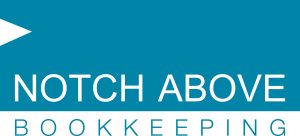Numbers Ready for your Exit Strategy
Exit Strategy 101: Do you know how valuable your business is?
When you’re busy running a business, an exit strategy is probably the last thing on your mind. Most people tend to put it off until they are close to retirement, winding up or needing a change.
But have you ever asked yourself this question:
“If something unfortunate happens to me tomorrow, how much would I get from selling my business?”
See, you don’t have to wait until it’s time to sell your business to think about this. Anything can happen in life so you should always be prepared. It is also considered good practice to value your business from time to time so you can plan your retirement properly.
Valuing your business
It goes without saying that you want to get the highest valuation for your business. In order to do so, you need to get your finances in shape and all your records in order. You also need to know all the important numbers that buyers are interested to know.
Having the right numbers could make or break a deal. It will also determine how sellable your business is to potential buyers. Remember, buyers will also do their due diligence on your business before making an offer. If you have something to hide or have not kept your records in order, you may lose a potential buyer.
Below are just a few examples of the data you need to have ready.
1 – Basic numbers
If you can’t produce the basic figures easily, you are in big trouble. They can be obtained from your financial reports. Do you know what is your cost of goods sold (COGS) or operating cost? What is your annual profit or loss after tax? Which line of product or service is the most profitable? And which is the most cost effective?
2 – Key financial ratios
Ratios indicate how healthy a business is. They can measure a number of things including profitability, liquidity, cost and leverage. For profitability, examples of important ratios are your gross and net profit margin and return on equity ratio. For liquidity, you need to know your current ratio, which measures how much cash you have to cover short term liabilities.
You should also compare your ratios with industry averages to see how you stack up in the industry.
There are a million and one ratios you can measure. Calculating them should be a simple job.
3 – Assets, Liabilities and Equity
How much are your tangible assets worth? Do you know what your intangible assets are? Do you have a detailed asset schedule in place? What are your short and long term liabilities? These questions are easily addressed from checking your latest balance sheet.
4 – Transferrable items
Can you easily identify which items are transferable to the new owner and which are not? Check the terms and conditions of all your business loans and leases. It may not be as straightforward to transfer to a new owner. This can put buyers off.
5 – Trend and Forecast
What is the profit, cost and debt trends for the last five years? What is the projected earnings for the coming years? Buyers would be eager to see these numbers to assess their risk and return of buying your business. They will also compare it to your competitors in the market so have those numbers ready too.
Your financial data should be easy to calculate and prepare, provided you have done your books right. With a cloud accounting software, some of the data can be produced within a few clicks. Your bookkeeper should be able to help you out.
Valuing your business is only one part of the equation. There are business and tax regulations you need to adhere to when you start the actual selling process with your preferred buyer. When you are ready to sell your business, you should enlist the help of a business broker, who specialises in buying and selling businesses.
Take action today to avoid a catastrophe if you have to wind up or sell your company suddenly. You should know by now that it is always good to plan ahead in business. I urge you to start discussing it with your bookkeeper, give us a call today or click here to book a time with me to discuss next actions?
Don’t say I didn’t warn you.
Specialising in Xero bookkeeping, Notch Above is a Brisbane bookkeeper and BAS Agent located in Alderley that offers Xero setup, as well as training and ongoing support. Notch Above can take care of all the bookkeeping tasks you would rather not do, like bank reconciliations, supplier payments, payroll services, debtor control and BAS returns.
Like us now on Facebook
Follow us now on Twitter
Connect with me on LinkedIn
Visit our Website



